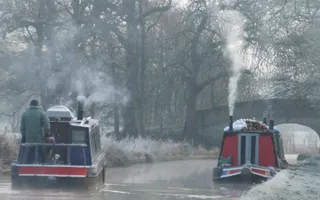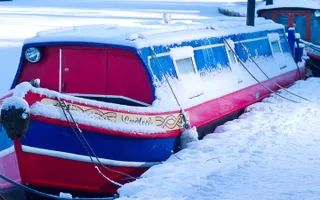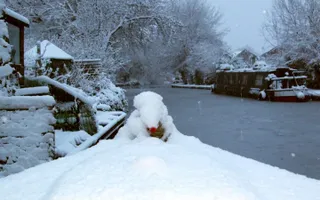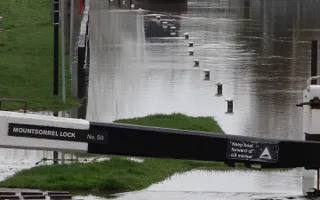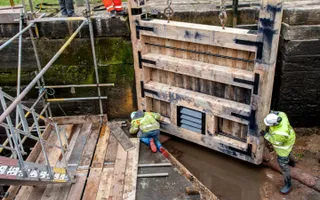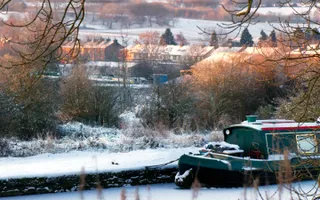Staying snug and cozy
Staying warm means making sure that not only is your means of heating safe and in working order, but also staying stocked up with fuel for your heating.
Canny boaters with space on their mooring always stock up in the summer to take advantage of summer fuel discounts. But for the majority storage is limited, especially if you are cruising, so you will need to rely on the services of fuel boats and other solid fuel suppliers.
Make sure too that you are aware of current regulations about what you can and cannot burn on your stove, and also about Smoke Control areas. There's more information here.
Stock up from the fuel boats
Whenever you see a fuel boat, stock up! Better still, make sure you find out who they are, and either follow them on social media, or make sure you're on their mailing list.
Many fuel boats will text or email you with their schedule and will even deliver when you're not there. Most of them are also happy to accept payment by BACS transfer, but don't forget to quote your boat name and index in the payment reference or you won't be popular when they try to do their accounts.
Try to give the fuel boats plenty of notice of what you need so that they can ensure they've got enough stock. Also keep a clear “landing” area for them so that they can actually deliver. Heavily laden boats are hard work and it can be dangerous enough for them negotiating bikes and other items on roofs and decks in summer.
Iced in
Another thing to remember is that even fuel boats get iced in if temperatures are sub-zero.
Always make sure you've got sufficient fuel to last you if a cold snap is forecast, although some suppliers will try and deliver by road if the conditions allow. When you do stock up, try to avoid storing too much on the roof of your boat as it could make your boat unstable and restrict your sight lines while cruising.
Moving through ice can damage moored boats as well as your own, especially boats with wooden or fibre glass hulls. Ice cover can also be patchy, so it might not appear to be frozen nearby, but could be two inches thick in a shady area not far away. Check ahead before moving in case the canal is frozen further along, it can vary a lot.
Be alarmed
Whatever way you heat your boat you must keep it safe. Make sure you have smoke and carbon monoxide alarms fitted and that you regularly test them. You now have to have carbon monoxide alarms in the cabin spaces of your boat as part of the Boat Safety Certificate.
Use your stove correctly and always make sure it's properly closed down to slumber overnight. If you're unfamiliar with using a solid fuel stove do read all of this essential safety advice from the Boat Safety Scheme, it could save your life.
Emergency rations
Be prepared for being snowed or frozen in, or even being trapped by flooding. It's not just about full water tanks, empty toilet tanks, and having enough fuel to keep warm and cook. You'll need a well-planned stock of food rations too.
Tins and liquid items such as milk, water, beer and wine are all heavy, even in a bike trailer, shopping trolley or wheelbarrow. Be savvy and plan your emergency larder in advance: stock up on items with a long shelf life and don't forget to make sure you've got a tin-opener on board.
If you have a long-term health condition that you need to take prescription medicine for, then it's doubly important to make sure you have enough supplies and maybe some in reserve too.
Thank you to all the boaters who helped contribute to this article.
If you'd like to join in the boating chat, why not join us on @CRTBoating Twitter.


